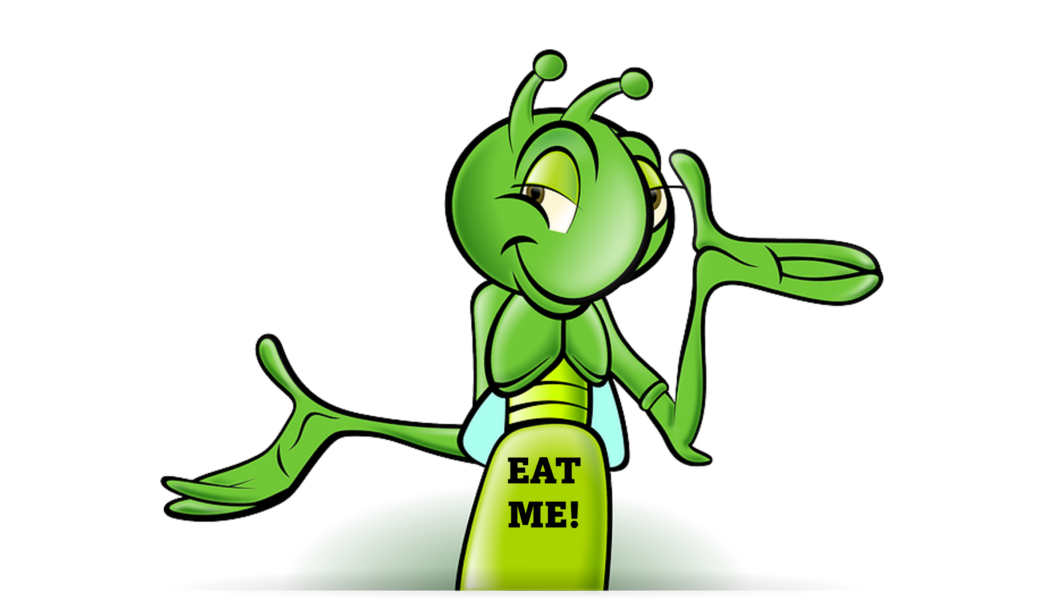The new world of sustainable insects or bugs, fake food, and “re-wilding” our farmland (stay tuned for more). This is a follow-up to the article “No farms, No food” and the WHO, WEF, and globalists’ brilliant ideas to starve us into a fake bioengineered, bug-eating world while they enjoy “re-wilding” our farmland and eating meat.
This series is to enlighten folks about the market and help them become knowledgeable when buying food.
All we really need to know is the WHO, WEF, and globalists are positioning bugs as “insects generate significantly less greenhouse gas and use considerably less land.” Aside from fish bait and reptile food, it’s going to take lots of our money to make it sustainable and palatable for people. But if ole Bill G, rhymes with fake, has anything to say about it. You’ll eat them and like it! Just check out “All Things Bugs, LLC.”…
We want to thank Julie P. for this Contribution – Please direct yours to Steve@GraniteGrok.com.
You can review our ‘Op-Ed Guidelines‘ on the FAQ Page.
Bugs…
We’ve gone from bugs as pests that should be eradicated to bugs to eat. Some of the propaganda will have you believing that if it were not for the native Americans’ yen for bugs, the colonies would have starved. Most of history reports farmers’ woes with bugs. Like the weevil that ruined many crops, but there’s the bee that sustained them, they did not “eat them though. There is a small percentage of insects that find their way into food, but pesticides are efficient in eradicating most of our foods today.
The EU, Canada, and the USA have approved some species of bugs for human consumption. They admit it will be years before whole bugs will sustain the population therefore it’s primarily being used as fillers while they ramp up their propaganda and normalize eating bugs, check out Irish documentary Ireland 2050. Bug farmers are getting subsidies from the governments. Canada agri-food just poured $8.5m; the USA $1.3B in private funds and $2.2m in grants.
The government claims there is a consumer demand for sustainable bugs. The only drawback, besides consumers being repulsed, is volume and pesty food regulations. Where’s PETA when you need them? Far be it for anyone to stop those who enjoy a meal of worms, but like everything else today, it’s being done in such a way not many are aware. Are bugs good for people? They have high-quality protein, but the sheer volume you’d have to eat is huge compared to meat, dairy, and poultry. This a push to make bugs sustainable and slowly remove meat, dairy, and poultry (have to be careful as meat is getting a makeover too) while convincing the masses cows are the devil reincarnated that’ll destroy the world with flatulence…
Here’s what to look for so far. (This is a partial list of bugs and foods with bugs, and it is always prudent and advised to do your own research! )
Grillodes Siggilatus – dried crickets can be found in bread and breakfast cereal, biscuits, cookies, and crackers. Many contain 10% bugs.
Tenebrio Molitor – whole ground mealworms can be found in bread and breakfast cereal, biscuits, cookies and crackers, meat, burgers, and sausages and other innovative applications!
Locusta migratoria – whole ground grasshopper or locusts (a novel food, food not consumed by humans until 1997) approved and advertised on the EU as potato, meat additives, soups, vegetables, chocolate, nuts sausages, milk- whole ground grasshopper or locusts.
Acheta domesticus – whole ground crickets or locust approved in the EU and US and used in energy bars, snacks, smoothies, fours, and additive fillers.
And!
Cochineal bug, aka carmine, is a red coloring derived from crushed-up bugs used in coloring found in candy, ketchup, soft drinks, sausage, and crab meat.
Stay tuned for more on “No farms, no food.”
